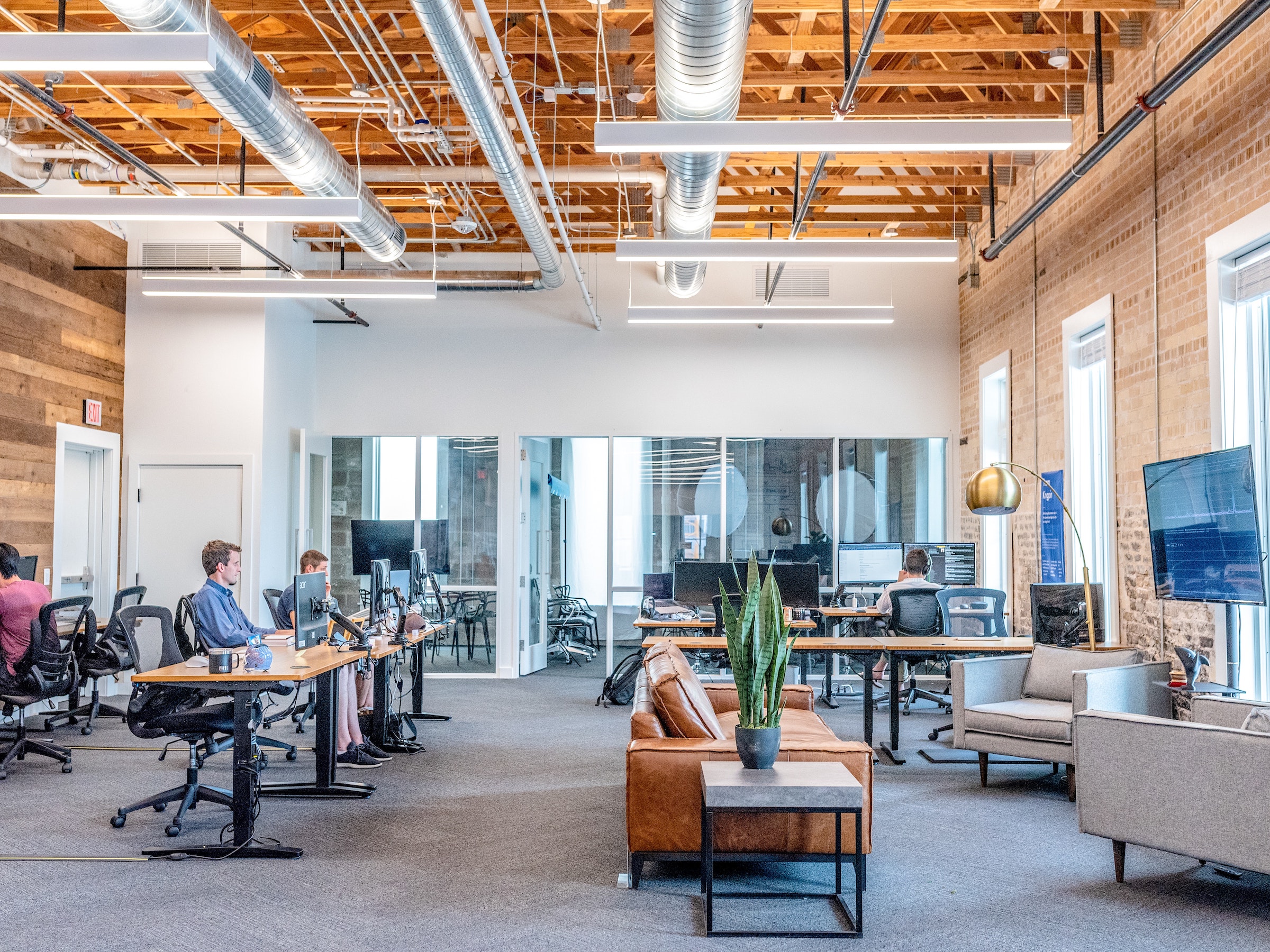As Americans, we spend a lot of time at work. In fact, the average person spends more than 90,000 hours in their lifetime in the workplace, translating to about a third of your life. How clean is your workplace? Cleanliness at work is important for several reasons, not the least of which is the fact that you are influenced and impacted by your environment every minute you are there.
Your stress is not a trophy. You wouldn’t put up with mess, clutter and unclean spaces in your home. Why should you tolerate it at work or your home office? The power of a clean workspace should not be underestimated. Even if your workspace is cluttered, this can have negative ramifications.
Studies have shown that people who work in a cluttered environment usually suffer from unrecognized stress and may feel overwhelmed by always having to search for documents, step over piles of clutter or navigate a dirty desktop. This isn’t only frustrating and stressful, it’s downright unsafe.
A clutter-free workspace is important, but so is having a clean, dirt-free space. This is the other side of cleanliness, the part of disorganization that can impact your physical health as well.
Germs run rampant through the workplace if common areas are not sanitized, such as break rooms, door knobs, sink handles and microwave ovens. Let’s go over some reasons why a clean workspace is good for your mental health and well-being.
A Drag on Productivity
Clutter causes us to lose precious minutes at work every time we have to search for a lost paper on a cluttered desk, or even digital files that seem impossible to locate in our computers. This equates to a serious lack of productivity in the workplace.
According to the Harvard Business Review, workers lose up to two hours a week searching for lost digital documents. When we are able to be productive, we feel confident and ready to tackle the next task on the list. Clutter can easily bog you down and make you feel as though you are drowning under the weight of your obligations.
Impact on Stress
Cluttered spaces can also have negative effects on our stress and anxiety levels, to be sure, but also on our ability to focus, our quality of sleep and even our eating choices. Workplace stress costs American businesses up to $190 billion each year in health care costs alone. It’s more important than ever to take a moment to recognize the role that clutter plays in our work lives, and what we can do to clean it up.
Many studies have shown that stress raises our risk of cancer, allergies, heart disease, and susceptibility to colds and flu. Stress can also sap your energy, cause fatigue, and increase negative thoughts that contribute to anxious feelings. When you can’t readily get tasks done due to clutter and uncleanliness in your workspace, you feel helpless, unproductive and stressed that you couldn’t get all your tasks done in the timeframe you wanted. Then, you have to stay late or cram in more the next day, adding to your stress levels.
Clutter Affects Emotions
Researchers looking at the interplay between stress and workplace clutter found that stress and emotional exhaustion causes employees to put off making decisions and to keep more documents and resources for ongoing tasks within easy reach. The result? Messy workspaces, to be sure.
However, even more so, our relationships with others are also affected by clutter. In another study, workers with cluttered desks were thought to be less conscientious, less agreeable and more neurotic, with such perceptions likely to negatively influence the way that others interact with them. They may even pose negative consequences for career advancement.
Health Implications
It may be tempting to put off dusting, sanitizing and other types of cleaning around the office, but when you take the time to do your part, this decreases the risk of suffering an injury or illness and may even boost performance levels. This is of particular concern for employers, who, by maintaining a clean workplace, can reduce their workers’ compensation claims and keep efficiency levels high.
Sanitizing desks and common areas can keep germs at bay and reduce the number of sick days, while reducing clutter around the office can increase safety by clearing fire exits and ensuring no falls or trips occur.
4 Simple Tips You Can Start Today
Here are some things you can do to ensure your workspace stays clean and clutter free.
Create a To-Do List
Keeping your to-do list of tasks in your head creates a hidden stress of worrying that you are forgetting something. Start keeping track of a journal portfolio and write down a list each day of what you need to get done. You get a sense of accomplishment when you can end every day with a clearer view of what you’ve done and what still needs to be done.
Clean Your Own Office
Sure, the night cleaning crew takes care of the basics, like vacuuming and taking out the trash, but it’s unlikely that they’re meticulously sanitizing your desk and phone. And if you work from home, you are on your own when it comes to keeping clean. A robot vac is a great way to put cleaning on autopilot for remote workers.
Eliminate the Clutter
Get ride of furniture and other items you simply are not using anymore. It doesn’t matter whether you throw it away, give it away, or put it in storage. The more items you can eliminate, the more mental space you give yourself.
Make Cleaning a Habit
Cleaning and organizing your space must be done consistently. Don’t wait for things to pile up because this is where the stress comes in. Make tidying and cleaning a part of your daily routine.
Heeding these tips will ensure you feel more productive and less stressed, with an increase in well-being as you go about your day.


